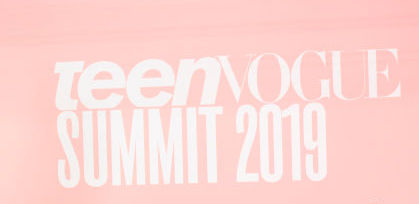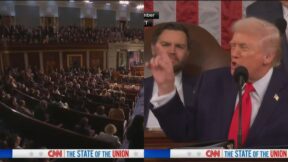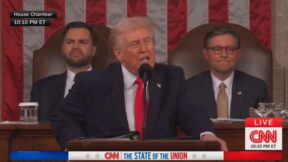Teen Vogue Deletes a Glowing, Mislabeled Sponsored Article on Facebook’s Election Integrity Project Under Heavy Criticism

Vivien Killilea, Getty Images for Teen Vogue.
Epic fail, Teen Vogue.
On Wednesday, the youth-oriented fashion-and-lifestyle magazine published, then mislabeled, then ultimately deleted a sponsored article that uncritically profiled Facebook’s efforts to stop 2020 campaign misinformation.
As detailed in the New York Times, the Condé Nast publication posted an unbylined article — identified as “sponsored editorial content” — that interviewed five women from the social network giant under the headline: “How Facebook is Helping Ensure the Integrity of the 2020 Election.” The story was reportedly part of a package deal that included Facebook’s sponsorship of the Teen Vogue 2019 Summit, which took place last fall.
Facebook, in a statement, said it misunderstood the terms of its summit sponsorship. “We had a paid partnership with Teen Vogue related to their women’s summit, which included sponsored content,” the tech giant told the Times. “Our team understood this story was purely editorial, but there was a misunderstanding.”
Confusion over this last point was critical, because not long after the story was published, the “sponsored” label was quietly removed, leaving readers to think the Facebook messaging was independent reporting. Without mentioning the sponsored nature of the story, Facebook COO Sheryl Sandberg championed the Teen Vogue story on her Facebook feed (her post has since been disappeared as well). Shorty thereafter, online critics, including a former Teen Vogue editor, converged, decrying the magazine’s decision to put its editorial imprimatur on an obvious PR vehicle for Facebook.
By Wednesday afternoon, with criticism mounting, Condé Nast pulled down the piece, and said in a statement: “We made a series of errors labeling this piece, and we apologize for any confusion this may have caused. …We don’t take our audience’s trust for granted, and ultimately decided that the piece should be taken down entirely to avoid further confusion.”
Here’s a sampling of the criticism:
Sheryl Sandberg shares an ad they paid for by painting it as a Teen Vogue article, and that Teen Vogue had to delete anyway because the whole thing was a mess https://t.co/zpU9uRX7Sx
— Gene Vogue (@GenePark) January 8, 2020
– Teen Vogue runs Facebook story people think is sponsored content
– Adds note saying its sponcon
– Then removes note
– FB denies to me that it’s sponcon
– Teen Vogue tweets “literally idk,” then deletes tweet
– Entire article suddenly disappears
– ????https://t.co/tLeSZYgAgF— Rob Price (@robaeprice) January 8, 2020
what a shitty thing for teen vogue management and conde nast corporate to do to the very good TV writers siloed away from unbylined spon con who probably had no idea this was coming https://t.co/G4vqMDdtvO
— Bridget Read (@bridgetgillard) January 8, 2020
Publishing this sort of uncritical corporate propaganda is especially noxious on a website like Teen Vogue.
The website’s demographic doesn’t remember in a world without Facebook.
To frame this as a fun guide to election integrity is shameful.https://t.co/fimjbUVDqg pic.twitter.com/kK4HVQSERM
— Ryan Broderick (@broderick) January 8, 2020
(In case you missed it, I’m saying this in reference to the obvious strong-arming of Conde Nast to leverage Teen Vogue’s earned credibility to place this PR blowjob: https://t.co/pph4VYUiMq)
— Brooke Binkowski (@brooklynmarie) January 8, 2020
interesting pivot for Teen Vogue here to… Facebook PR? https://t.co/9piUkJOHYW
— Steven Perlberg (@perlberg) January 8, 2020
Teen Vogue is gaslighting America ?? https://t.co/80x7WuoajD
— Lauren Duca (@laurenduca) January 9, 2020
——
New: The Mediaite One-Sheet "Newsletter of Newsletters"
Your daily summary and analysis of what the many, many media newsletters are saying and reporting. Subscribe now!






Comments
↓ Scroll down for comments ↓